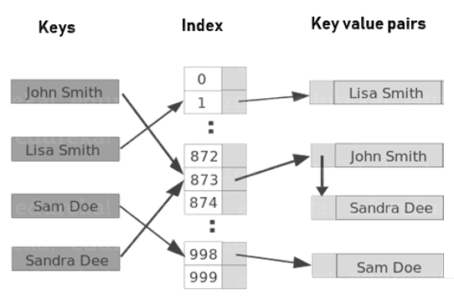Why Are Strings Immutable in Java? Recognizing the Core Principles
Why Are Strings Immutable in Java? Recognizing the Core Principles
Blog Article
What Is Immutable Strings and Exactly How It Works
In the world of shows, recognizing the concept of immutable strings is paramount for creating robust and safe and secure applications. Immutable strings describe strings that can not be altered after they are created, ensuring information integrity and predictability within the code. This basic principle plays an essential function in various shows languages and provides an unique approach to handling information. By checking out the intricacies of how unalterable strings operate, one can uncover a world of advantages and opportunities that can boost the high quality and efficiency of software program growth.
The Fundamentals of Unalterable Strings
Immutable strings, as an essential principle in shows, are personality series that can not be altered once they are developed. This indicates that as soon as a string is appointed a worth, that value can not be changed. In languages like Python and Java, strings are unalterable things, resulting in numerous implications in terms of memory administration and information integrity.
One of the essential advantages of unalterable strings is that they offer a feeling of security in data control. Because the web content of an unalterable string can not be changed, it makes sure that the original information remains intact, lowering the risk of unplanned modifications throughout program execution (Why are strings immutable in Java?). This residential property likewise streamlines debugging processes, as designers can rely on that when a string is specified, its value will not be inadvertently modified
When a new string is produced based on an existing one, instead than modifying the original string, the new worth is stored separately. Generally, comprehending the basics of unalterable strings is critical for grasping programs concepts and maximizing code performance.
Benefits of Unalterable Strings
Building upon the security and performance advantages of unalterable strings, their benefits expand to boosting code integrity and streamlining concurrent programs jobs. By being unalterable, strings can not be changed after development, which gets rid of the risk of unexpected modifications in the information they store. This fundamental immutability ensures that once a string is created, its worth stays continuous throughout the program's implementation, lowering the opportunities of bugs triggered by unanticipated modifications.
Additionally, immutable strings add to code dependability by making it less complicated to reason concerning the state of a program. Considering that strings can not be changed, developers can rely on that a string will constantly hold the exact same value, streamlining debugging and maintenance efforts. This predictability leads to a lot more trustworthy and stable codebases.

Execution in Programming Languages
Within numerous programming languages, the incorporation of unalterable strings is a fundamental element that impacts just how information is dealt with and adjusted within code frameworks. The execution of immutable strings differs throughout various programs languages, with each language offering its very own mechanisms to sustain this concept.

On the other hand, languages like C and C++ do not have integrated assistance for immutable strings. Developers in these languages must by hand execute immutability by implementing policies within their code to avoid straight modifications to string items.
Finest Practices for Dealing With Unalterable Strings
When handling unalterable strings in programs languages like Java and Python, adhering to best techniques guarantees reliable and safe and secure information adjustment. Among the crucial ideal methods is to use StringBuilder or StringBuffer rather of straight controling strings, especially when dealing with comprehensive concatenation operations. These classes provide mutable options for string adjustment, assisting to prevent unnecessary memory allocations and enhancing performance.
An additional finest practice is to use string interpolation or format functions supplied by the language as opposed to hands-on concatenation. This not only enhances readability however likewise aids in avoiding common mistakes such as unintentional string alterations. In addition, when dealing with sensitive data such as passwords or API secrets, it is vital to prevent saving them as ordinary message in immutable strings. Using safe and secure storage space mechanisms like char arrays or specialized collections for dealing with sensitive info aids alleviate protection threats related to immutable strings.
Real-world Applications and Examples
Checking out this contact form functional executions of unalterable strings in various industries discloses their significant influence on data integrity and system integrity. In the health care industry, unalterable strings play a crucial role in ensuring the security and discretion of patient information. By preventing unapproved alterations to sensitive information such as clinical documents and prescriptions, unalterable strings assist preserve compliance with strict personal privacy policies like HIPAA.
Financial establishments additionally profit from the unalterable nature of strings to boost the safety and security of customer data and transaction documents. Immutable strings assist protect against fraudulence and unauthorized modifications to financial info, offering a robust defense versus cyber hazards and making sure the trust and self-confidence of clients.

Verdict
To conclude, immutable strings are view publisher site fixed and stable sequences of personalities that provide benefits such as thread safety and security and enhanced performance in shows. They are implemented in various programming languages to guarantee information stability and safety. Best practices for collaborating with immutable strings consist of staying clear of straight alterations and making use of techniques that return brand-new string objects. Real-world applications of unalterable strings consist of information encryption, caching, and string control tasks.
Immutable strings refer to strings that can not be modified after they are created, guaranteeing information integrity and predictability within the code. When a brand-new string is produced based on an existing one, rather than customizing the original string, the new value is saved separately.In languages like Java and Python, strings are immutable by default, suggesting that as soon as a string item is developed, its value can not be altered - Why are strings immutable in Java?. Finest practices for working with unalterable strings include staying clear of direct modifications and using approaches that return brand-new string items. Real-world applications of unalterable strings include data file encryption, caching, and string adjustment tasks
Report this page